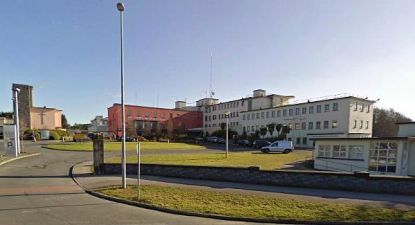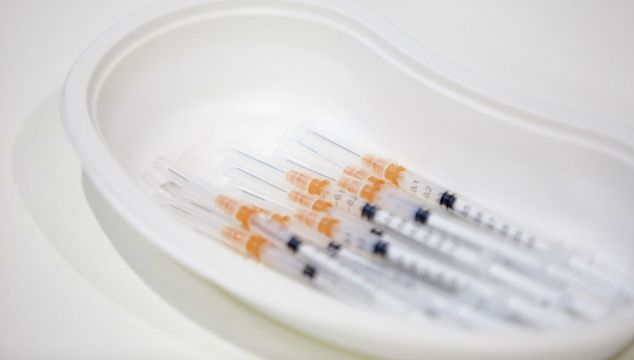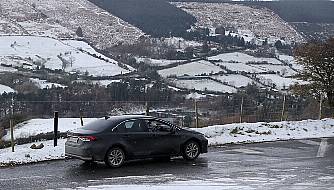Early results in the trial of a variant-proof Covid-19 vaccine have been described as “tremendous” by Professor Luke O’Neill.
The unique vaccine is being developed by the Walter Reed Army Institute of Research (WRAIR), part of the US Army Medical Research and Development Command, and aims to work against all coronavirus variants.
The vaccine, called spike ferritin nanoparticle (SpFN), has already been tested in animals and began human trials earlier this month.
Prof O’Neill, a professor of biochemistry at Trinity College Dublin and a member of the new Covid-19 Advisory Group replacing the National Public Health Emergency Team (Nphet), said test results on animals have been impressive.
“Amazingly, it protects against SARS – the original virus – SARS-CoV-2, Alpha, Beta, Delta, Omicron. It protected against all of those in the monkeys – now again, that’s a tremendous result,” he told Newstalk radio.
“They’re in the middle of a phase one trial in humans. They’re saying any day now, actually, [for results]. It’s a bit like it was when the vaccines were first out. We’re going to get the data from that phase one trial soon.”
'Moon shot'
Prof O’Neill said the new pan-coronavirus vaccine aiming to work against all current – and future – variants is a “moon shot”.
The SpFN nanoparticle jab works using different technology than that of Pfizer and Moderna’s mRNA vaccines and AstraZeneca and Janssen’s viral vector jabs.
SpFN vaccine developers have attempted to isolate a piece of the coronavirus spike protein that does not change with new variants, as the immune system’s defences are trained by vaccines to recognise a particular form of the spike.
"So Omicron has this massive variety of changes, basically, and then you see increased infections with Omicron as a result,” Prof O’Neill said.
“But the question is, can you find a piece of the spike that doesn’t change?”
He said a site called the RBD - or Receptor Binding Domain – is common to all coronaviruses, and “now that's the one they're focusing in on in a very clever way".
We are in this for the long haul
Phase one clinical testing of the vaccine began on April 6th in the US, enrolling 72 healthy adult volunteers aged between 18 and 55 who were randomly placed in placebo or experimental groups.
Dr Kayvon Modjarrad, director of the Emerging Infectious Diseases Branch (EIDB) at WRAIR, is leading the vaccine research efforts and co-invented the vaccine with WRAIR structural biologist Dr Gordon Joyce.
“We are in this for the long haul,” said Dr Modjarrad at the launch of the phase one trial.

“We have designed and positioned this platform as the next generation vaccine, one that paves the way for a universal vaccine to protect against not only the current virus, but also counter future variants, stopping them in their tracks before they can cause another pandemic.
“Even before recent Covid-19 variants were identified, our team was concerned about the emergence of new coronaviruses in human populations, a threat that has been accelerating in recent years.
“That’s why we need a vaccine like this: one that has potential to protect broadly and proactively against multiple coronavirus species and strains.”
It comes as BioNTech-Pfizer and Moderna are testing experimental monovalent and bivalent vaccines on humans to better protect against the dominant Omicron variant and also against any future variants.







